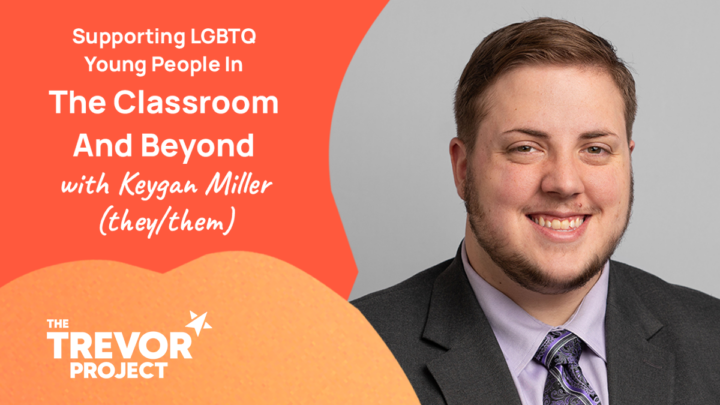Muslims are finishing their final fasts of the holy month of Ramadan. For the last time this month, we will recite prayers, donate to charitable causes, and reflect upon our lives. Soon we will celebrate Eid, a celebratory day for exchanging gifts, sharing food with family and neighbors, and existing in community.
The story for young LGBTQ Muslims can be a bit more complicated — it certainly was for me. Ramadan meant putting my faith on full display at school. The response from peers spanned from curious questions — “you can’t even drink water?” — to more hateful comments. On top of the pressures of being LGBTQ as a young person, being a young Muslim in America can feel overwhelming. At home, the story was also complex. I found joy and strength in tradition, community, and family. But being queer threatens to upend that order as a young person in the closet. Will an auntie make a comment about my voice and mannerisms? Do I need to play soccer with the boys at the mosque to seem straight? Balancing my faith and my sexuality felt impossible.
LGBTQ young people face even greater pressures than I can imagine. The Trevor Project’s research has found that 45% of LGBTQ youth seriously considered attempting suicide in the past year. Hundreds of anti-LGBTQ laws introduced in 2023 alone threaten to silence, exclude, or out LGBTQ young people. But having accepting community can significantly lower an LGBTQ+ young person’s risk of attempting suicide.
This year, Ramadan coincided with holy days in other faith traditions including Christianity, Hinduism, and Judaism. While this time can be spiritually significant for many, it can also be challenging for LGBTQ individuals who practice these faiths. LGBTQ youth who identify with a particular faith may struggle with reconciling their sexual orientation or gender identity with their faith teachings or community’s beliefs. It’s important to remember that being LGBTQ and practicing a faith are not mutually exclusive. LGBTQ individuals can find their own unique interpretations and understandings of their faith, and they deserve to be respected and affirmed in their identities.
Within Islam, LGBTQ people have existed in community and have found chosen families for centuries. In the eighth century, Abu Nuwas wrote poetry for Abbasid nobility, frequently about homosexual romance. Long before any western empire would follow, the homosexuality was decriminalized in 1858 in the Ottoman Empire. Recently, Tan France charmed us in Queer Eye and Arooj Aftab stole our hearts at the Grammy Awards. Queerness has existed throughout Islamic history into the present, because we have always been here.
I don’t mean to paint a romanticized picture. LGBTQ people in many Islamic countries face discrimination and criminalization. Queer people growing up in communities of faith still face rejection. But I hope that faith can also be a force for acceptance of LGBTQ people. Fasting, for example, reinforces the importance of compassion. It teaches us to value what we have and to share what we can. It encourages us to be mindful and to practice empathy. At their core, faith-based practices like fasting for Ramadan are reminders to embrace and understand those around us — including LGBTQ people.
Samir Durrani is a Special Projects Manager at The Trevor Project, the leading suicide prevention and mental health organization for lesbian, gay, bisexual, transgender, queer & questioning (LGBTQ) young people. If you or someone you know is feeling hopeless or suicidal, our trained crisis counselors are available 24/7 at 1-866-488-7386 via chat www.TheTrevorProject.org/Get-Help, or by texting START to 678-678.


